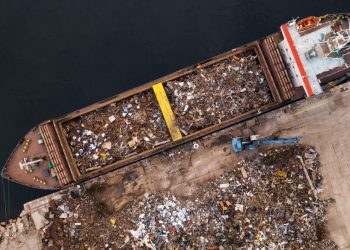Fisheries-related conventions are key tools used by flag, coastal and port States to monitor and control fishing vessels and limit the risk of illegal, unreported and unregulated (IUU) fishing activities, by enhancing transparency, traceability and governance.
This was the focus of a national workshop in Shanghai, China, that took place from 29 to 30 July, organized by the Shanghai Ocean University and the Bureau of Fisheries of the Ministry of Agriculture and Rural Affairs of the People’s Republic of China, with input from IMO, the UN Food and Agriculture Organization (FAO), the Pew Charitable Trusts and the IMO Number Scheme manager (IHS Markit).
Participants talked about China’s possible ratification and implementation of fisheries-related conventions, including IMO’s 2012 Cape Town Agreement (CTA), aiming to improve safety standards on fishing vessels, and the 1995 Standards on Training, Certification and Watchkeeping for Fishing Vessel Personnel (STCW-F).
They also discussed the implementation of the FAO 2009 Agreement on Port State Measures to Prevent, Deter and Eliminate Illegal, Unreported and Unregulated (IUU) Fishing (PSMA).
China has not yet ratified the IMO fishing vessel safety and training treaties. However, it reported that significant research has started into ratification implications. Mr. Han Xu, Deputy Director-General of the Bureau of Fisheries, said that the Chinese Government focuses on the safety of fishers and stated:
There are difficulties in implementing these conventions due to the scale of our fleet, however we have a saying in China – there are more solutions than problems
[smlsubform prepend=”GET THE SAFETY4SEA IN YOUR INBOX!” showname=false emailtxt=”” emailholder=”Enter your email address” showsubmit=true submittxt=”Submit” jsthanks=false thankyou=”Thank you for subscribing to our mailing list”]
The workshop ended with China pledging to attend the Ministerial Conference on Fishing Vessel Safety and Illegal, Unreported and Unregulated (IUU) Fishing, organized by IMO and the Government of Spain, Torremolinos, Málaga, Spain, on 21 to 23 October 2019, as well as to provide the conference with information on measures to be taken for the implementation of the Cape Town Agreement.
China also welcomed the IMO Number Scheme manager’s suggestion to allow for phased allocation of the IMO Ship Identification numbers to Chinese fishing vessels of 12 metres in length and above. This will also be used to populate the FAO’s Global Record of Fishing Vessels, Refrigerated Transport Vessels and Supply Vessels. The IMO Ship Identification Number Scheme is currently voluntary for fishing vessels.
Until now, 11 States with a total of 1,413 vessels have become parties of the Cape Town Agreement. The treaty will apply 12 months after at least 22 States, with an overall 3,600 fishing vessels of 24m in length and more, operating on the high seas, have expressed their consent to be bound by it.
The Ministerial Conference on Fishing Vessel Safety and IUU Fishing (21-23 October) will be followed by the Joint FAO/ILO/IMO Working Group on IUU Fishing, from 23 to 25 October.































































